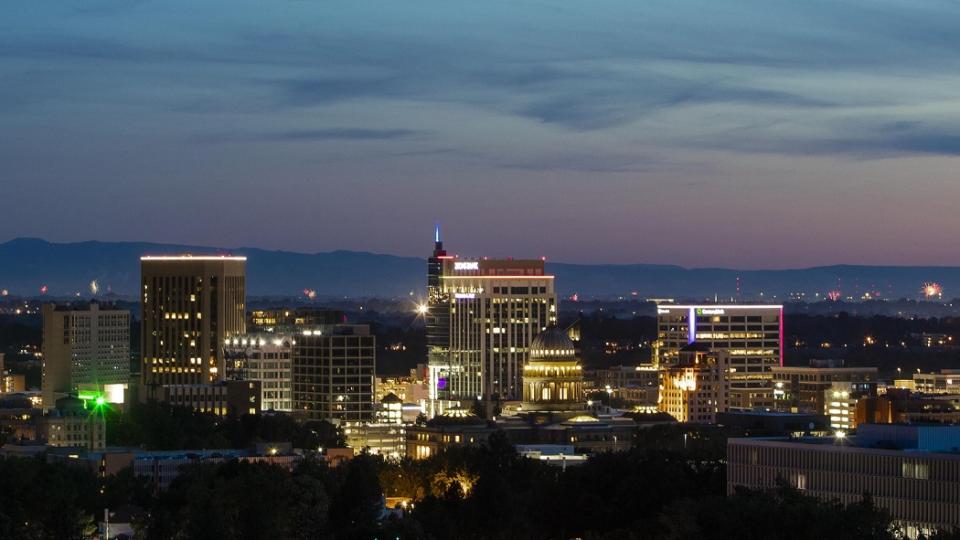This church is divided on LGBTQ+ rights. The split may hit Idaho, the Northwest
What some are calling a schism in the United Methodist Church over the issue of homosexuality is also affecting churches in the Pacific Northwest, although to a lesser degree.
As many as 30 churches out of 400 churches in what’s known as the Greater Northwest Area that includes Idaho, Washington, Oregon and Alaska have considered or are considering leaving the United Methodist Church.
“It’s heartbreaking when churches leave,” the Rev. Karen Hernandez, district superintendent of the United Methodist Church in Southern Idaho and eastern Oregon, said in a phone interview. “We can still be in relationship, but we’re not officially connected. We’ve said that we can’t agree on enough to stay together as one church. That’s still a loss, I think, on both sides. I certainly feel it as a loss.”
Conservative churches are leaving the United Methodist Church over the widely accepted practice of many churches in the United States of ordaining and marrying LGBTQ people.
The issue of homosexuality has been simmering in the United Methodist Church for decades but came to a head in 2019, when the church’s governing body voted to allow churches to leave the denomination if they’re seeking to leave because of differences in theology related to sexuality.
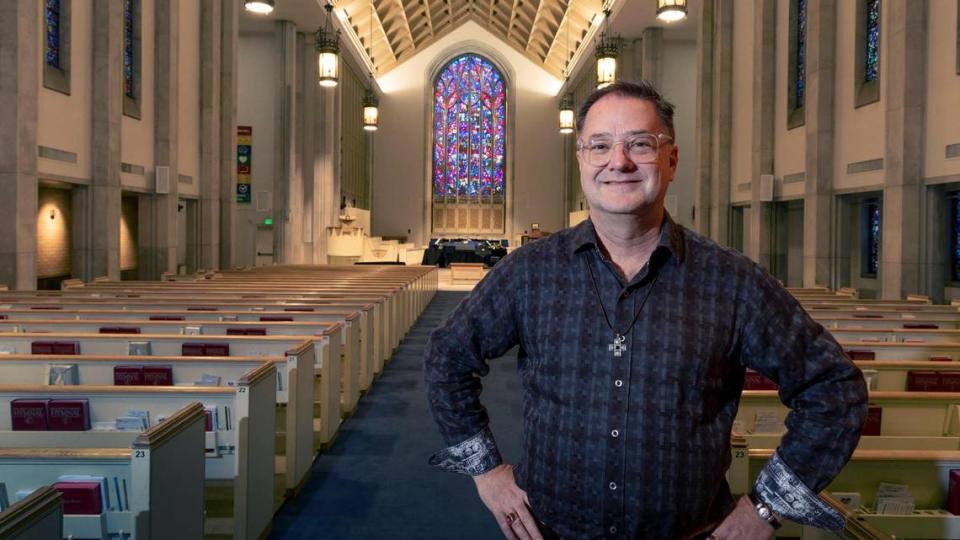
So what’s the problem?
The United Methodist Church’s doctrine has an apparent conflict when it comes to homosexuality.
One part of the church’s doctrine states that “all human life is of sacred worth.” That suggests that everyone — gay or straight — deserve the same rights, including being clergy members and getting married.
However, another part of doctrine states that homosexuality is “incompatible with Christian teaching.”
“Our doctrine actually kind of speaks out of both sides of our mouths, you might say,” the Rev. Duane Anders, pastor at Boise’s Cathedral of the Rockies, said in a phone interview. “In one part of our Book of Discipline, you’ll find the language that every person is created of sacred worth. And then another part you’ll find the prohibitive language where it says we find homosexuality incompatible with the teachings of Jesus. Which is it? Everybody’s made of sacred worth or some group isn’t. So we’ve been kind of living in this tension.”
The Idaho Way Newsletter
Sign up for The Idaho Way
Get our weekly newsletter of opinions, commentary and your views — brought to you by the opinion editor of the Idaho Statesman.
While official church doctrine prohibits gay clergy and gay marriage, many members in the United Methodist Church, particularly in the United States and particularly in the Western United States, have embraced the “all human life is of sacred worth” portion of doctrine over the homosexuality is “incompatible with Christian teaching” part of doctrine.
“So you can see that the differences of opinion in the United Methodist Church show up in our book,” Hernandez said. “But there are many United Methodists, especially in the Western U.S., where saying that we refuse to ordain or appoint self-proclaimed practicing homosexuals doesn’t fit with their theology. And the same with the prohibition against marriage.”
Essentially, these churches are flouting the official rules of the United Methodist Church.
“So folks that have those strong beliefs are seeking to live with integrity, and for them, following their beliefs, doing what they believe to be just and in keeping with their faith, they’ve prioritized that over the rules,” Hernandez said.
Anders sees the doctrine on homosexuality similar to an “unjust law,” in the words of Martin Luther King Jr.
“When there’s an unjust law, you don’t necessarily follow the unjust law,” Anders said. “And so, probably 12 or 14 years ago, one of our bishops said, we’re inviting you to be ecclesiastically disobedient. So that was kind of the door opening.”
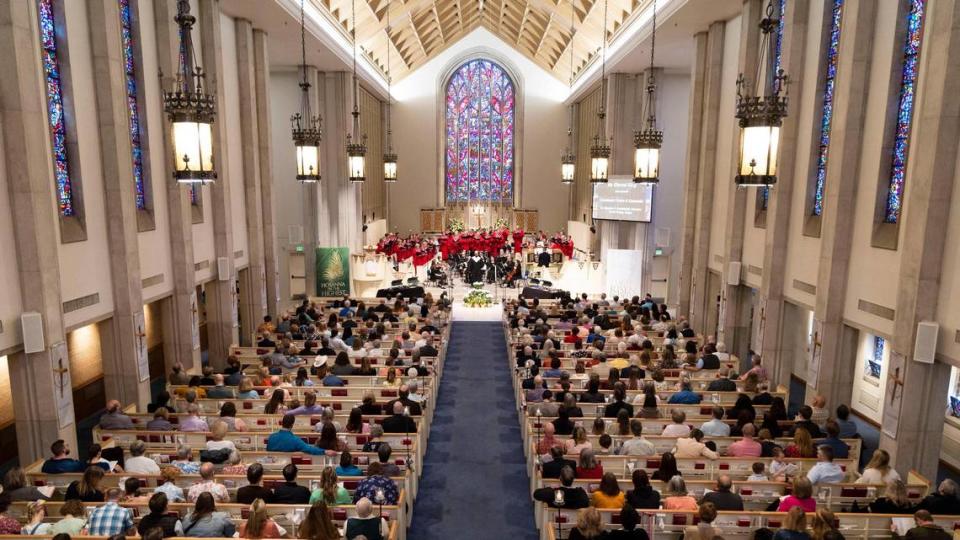
‘Splinter’
Some have called it a schism, but given the relatively few numbers of churches breaking off, “splinter” seems more accurate.
“ ‘Splinter’ is the way I’ve often been referring to it,” Hernandez said. “That feels most accurate to me.”
As of March, about 7% of United Methodist churches in the United States had been granted permission to disaffiliate since 2019, according to a United Methodist News review.
But as the deadline to disaffiliate nears, those numbers are certain to increase.
Some regions of the country have relatively low disaffiliation numbers: 1% in the West Region, 3.1% in the North Central Region, and 0.6% in the Northeast, according to a review of church data analyzed by Religion News Service in an article that appeared in Christianity Today.
But some regions are seeing much larger numbers of disaffiliations, such as the Southeast (8.1%) and South Central (14.1%), particularly Texas, where 525 churches have disaffiliated, according to the analysis.
The five conferences with the greatest number of exiting churches are in Texas, North Carolina, Alabama and Indiana, according to the article in Christianity Today. These five conferences, with two in Texas, account for 57% of all departures.
Individual churches can leave the denomination through the end of 2023 and, depending on the rules of their specific conference, they can leave with their land and buildings.
Churches can become an independent church or join another denomination. Some churches are choosing to join the newly formed “Global Methodist Church,” a breakaway conservative denomination formed in response to what’s happening within the United Methodist Church.
Individual churches have been having those discussions and taking votes among their own church clergy and lay members, Hernandez said. She couldn’t disclose details of which churches locally are considering disaffiliation.
The next step in the Oregon-Idaho annual conference is a vote of the annual conference’s governing body to approve individual churches’ requests for disaffiliation at the next session scheduled for May 6. Hernandez said she expects more votes on disaffiliation in another meeting in the fall to meet the deadline for disaffiliation by the end of the year.
Hernandez said some churches are ready for consideration and others are still in the process. Out of the 30 churches in the Greater Northwest Area that have considered disaffiliation, some started the process but chose not to continue and decided to stay in the United Methodist Church, she said.
Hernandez added that some of the churches among the roughly 30 that have seriously considered disaffiliation are progressive and have considered disaffiliation because they believe that the United Methodist Church is not going far enough in its inclusion efforts.
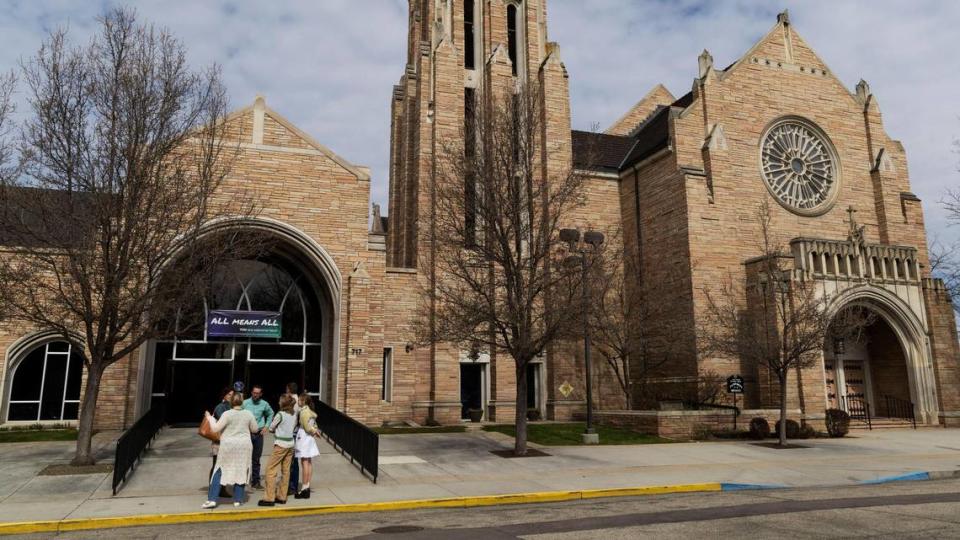
World church
Part of the difficulty comes in the way the United Methodist Church approves changes or additions to its official doctrine, known as the “Book of Discipline,” which gets updated every four years at what’s called the General Conference. Changes are voted on by a group of 800-1,000 clergy and lay people.
Along the way, both statements — all human life is of sacred worth and homosexuality is incompatible with Christian teaching — received enough votes to be included in doctrine.
While the United Methodist Church is the country’s second-largest Protestant denomination, with 6.4 million members, it’s also a worldwide church, with 13 million members worldwide.
“Because we’re a world church, it’s been a struggle to remove the (homosexuality) language,” Anders said. “If it was just an American church, I think the language would have been removed 10 or 15 years ago.”
Because the church is growing in other parts of the world while it’s shrinking in the United States, the group of people whose influence is growing in church doctrine is increasingly people outside the United States, namely Africa, Hernandez said.
So what about biblical teachings, though, that homosexuality is wrong?
Hernandez concedes there are six so-called “clobber passages” in the Bible that specifically address homosexuality.
“But I’m much more worried about the scores of verses that tell us to love one another, to remind us that it’s not the place of any human to judge,” she said. “Who am I to say this whole category of people, based on my judgment, they have no right to be pastors?”
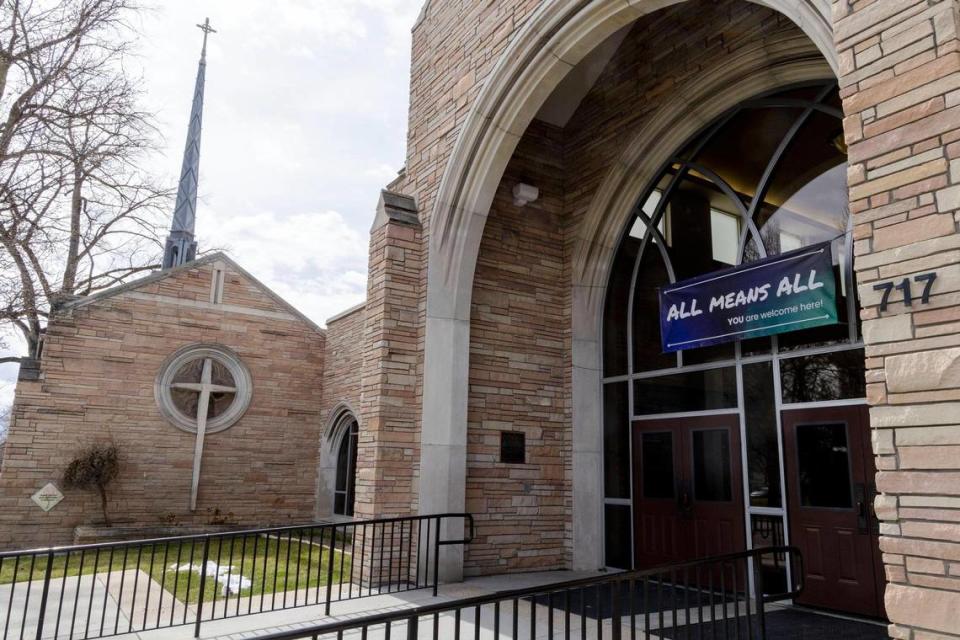
‘All Means All’
Many Methodist churches have gay clergy, even gay bishops, and perform gay marriages.
The Greater Northwest Area’s new bishop, Cedrick Bridgeforth, elected in November, is the first openly gay man to be elected as a United Methodist bishop. Bishop Karen Oliveto, the first openly gay United Methodist Church bishop, was elected in 2016. Oliveto serves the Mountain Sky Area, which covers all of Colorado, Wyoming, Montana and Utah and a small portion of Idaho.
Boise’s Cathedral of the Rockies, also known as Boise First United Methodist Church, has 2,800 members. “All Means All” is the church’s slogan, and a banner stating as much adorns the entrance, while a Progress Pride flag flies out front.
Anders said discussions about church doctrine came to a head in 2016 when Anders was part of a delegation that elected Oliveto. Some members questioned the decision to go against church doctrine, and about 50 members ended up leaving the church, he said.
Anders said the decision to elect the bishop had nothing to do with her sexual orientation.
“She was our best candidate,” Anders said. “Of course, we would elect her. It doesn’t matter that she’s LGBTQ.”
Anders noted that the Methodist Church has split once before — during the Civil War.
“And it took us 100 years, almost, to come back together after the Civil War,” Anders said.
He said he sees the current situation similarly and envisions a day when the Methodist Church is reunited once again.
“I think the next generation looks at the church fighting this issue and says, ‘I can’t believe you’re all talking about this,’ ” Anders said. “It’d be like me saying to my parents, ‘Why are we talking about whether Black and white people can worship together?’ Of course we can.”
Background
The Methodist Church is divided into geographic regions called “annual conferences.”
Three conferences comprise the Greater Northwest Area:
The Oregon-Idaho conference includes all of Oregon and Southern Idaho
The Alaska conference includes all of Alaska
The Pacific Northwest conference includes all of Washington state and North Idaho.
The Oregon-Idaho conference includes 168 churches. The Treasure Valley is in the Sage District, which includes 41 churches in Southern Idaho, from Ashton to Fruitland, and eastern Oregon, including Baker City, Vale, Joseph, Haines, LaGrande and more. Boise is home to four Methodist churches.
